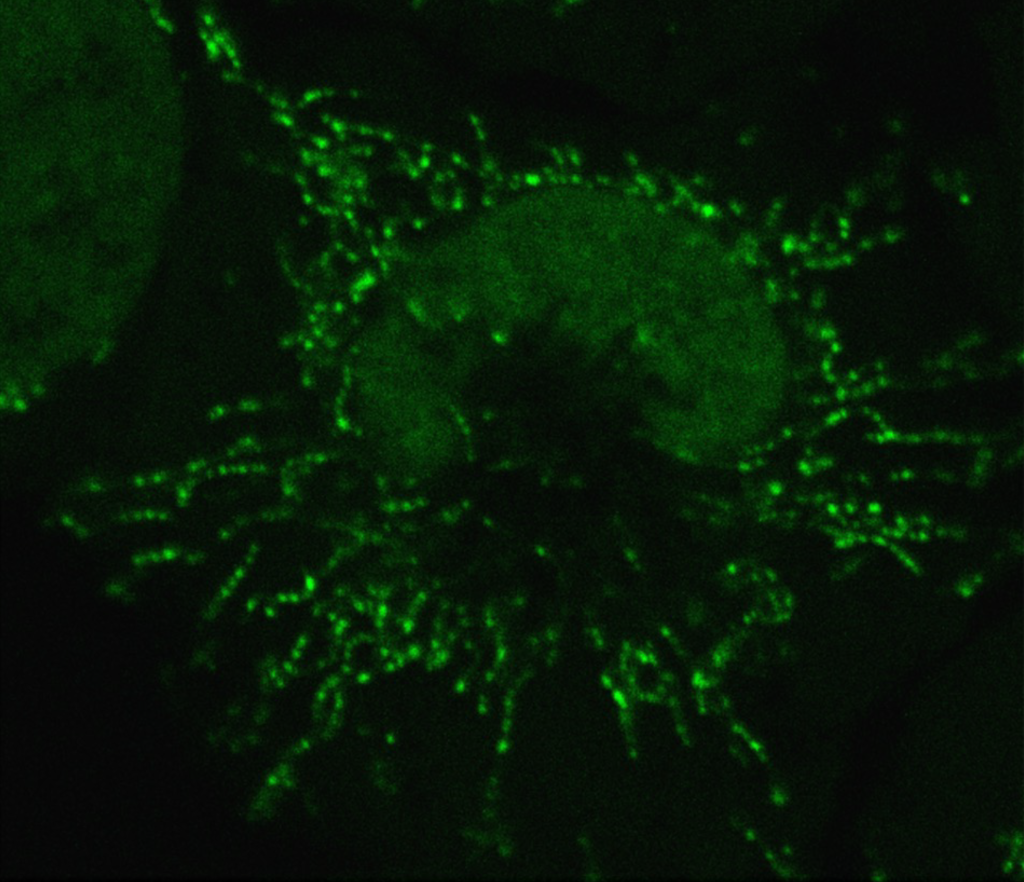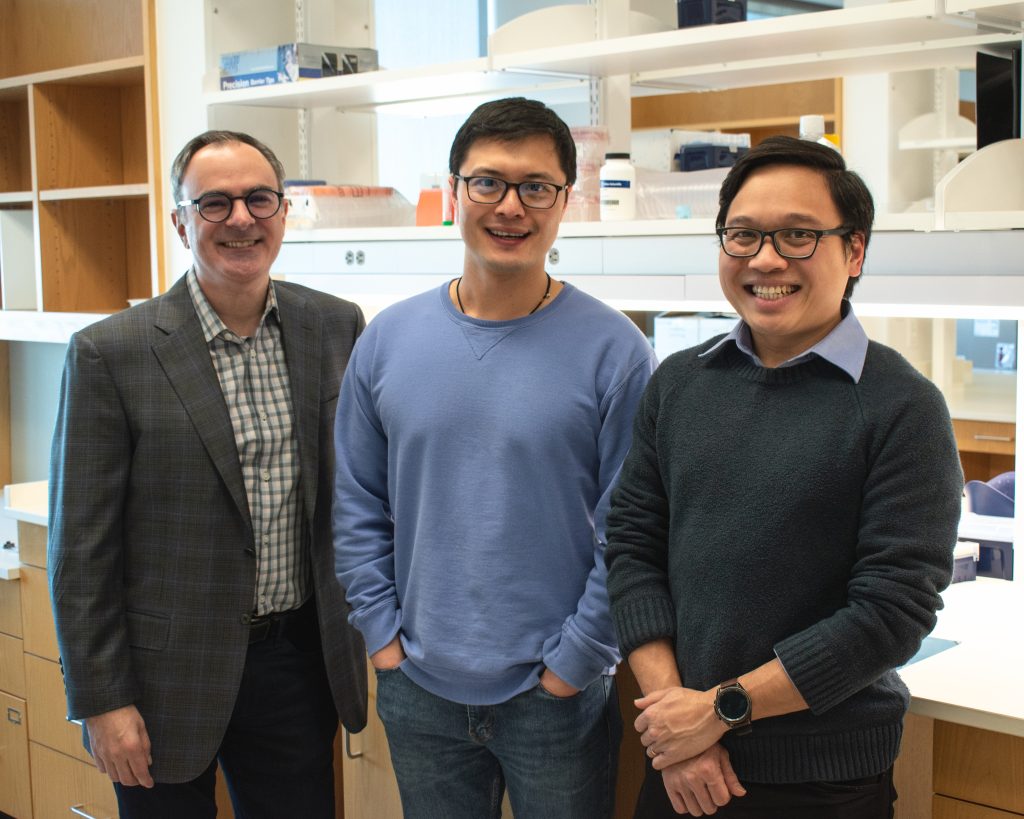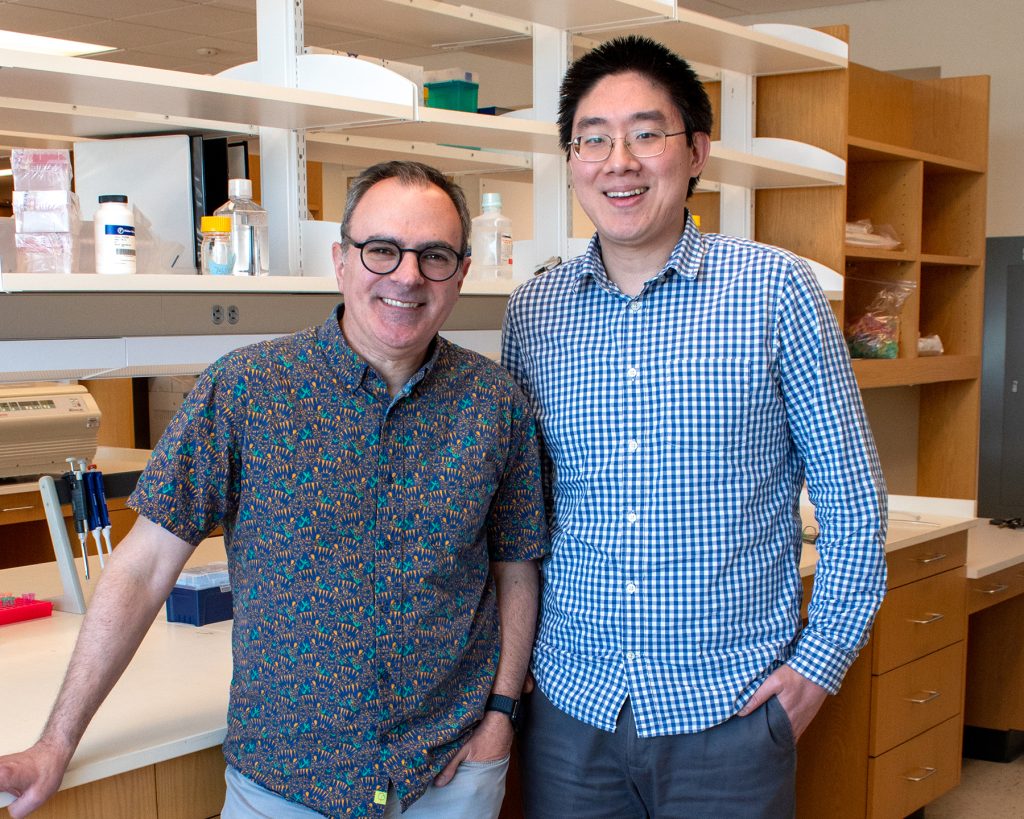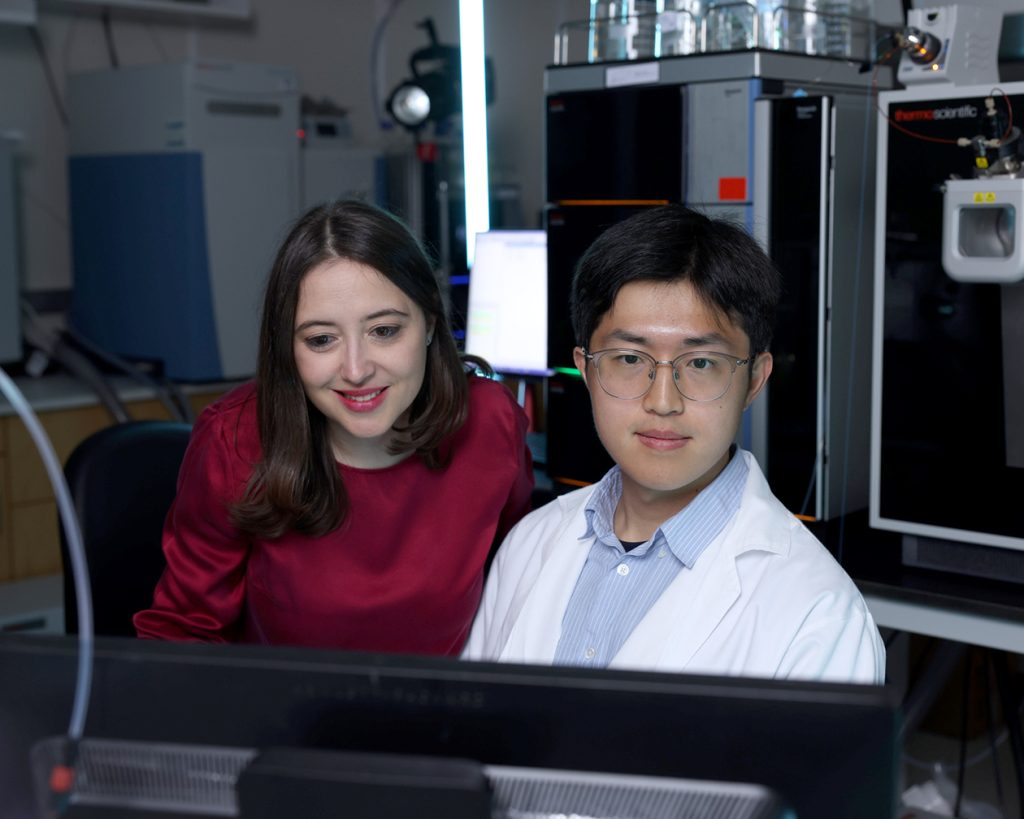
Research builds on prior CRI discovery about healthy mitochondrial metabolism being necessary for cancer spread
Human cells contain DNA in two places — the nucleus and mitochondrion — and mutations in mitochondrial DNA (mtDNA) prevent cancer cells from entering the bloodstream and halt the spread of skin cancer, according to research from Children’s Medical Center Research Institute at UT Southwestern (CRI) published today in Science Advances.

(left) Prashant Mishra, M.D., Ph.D., is an associate professor in CRI and of Pediatrics at UT Southwestern. Spencer Shelton, Ph.D., is a postdoctoral fellow at Boston Children’s Hospital and former graduate student researcher in CRI’s Mishra Lab.
Spencer Shelton, Ph.D., Alpaslan Tasdogan, M.D., Ph.D., Prashant Mishra, M.D., Ph.D., and CRI scientists investigated how mtDNA mutations, which inhibit energy generation, affect the growth and spread of human skin cancer, or melanoma, tumors. Researchers discovered that while mtDNA mutations did not prevent a tumor from growing, the mutations stopped cancer cells from invading into the blood stream and spreading to other organs.
“While mutations in nuclear DNA are well-known to regulate cancer, the role of mitochondrial DNA mutations has been controversial ever since their first observation in human cancers more than two decades ago,” said Dr. Mishra, an associate professor in CRI and of Pediatrics at UT Southwestern. “Our research suggests the metastatic process is highly dependent on mitochondrial activity, and targeting mitochondrial metabolism may be a treatment option for aggressive cancers.”
Mishra Lab members created a new, more efficient technique to transplant mitochondrial genomes into cancer cells. When scientists compared cancers in mice with healthy genomes versus cancers with mutated mitochondrial genomes, they discovered only the cancers with healthy genomes were able to spread via blood.
CRI researchers also discovered that the number of cancer cells in the blood suddenly decreased when mice carrying melanomas with healthy mitochondrial genomes were treated with drugs inhibiting mitochondrial metabolism.
“This study emphasizes how specific steps in the spread of cancer can be dependent on mitochondrial activity. We hope the results will help us understand how to prevent cancers from spreading in patients with aggressive disease,” Dr. Mishra said.
Previous CRI research has shown mitochondrial metabolism is vital for kidney cancers to metastasize. This new Mishra Lab research on skin cancers shows that the impact of mitochondrial health extends to other cancer types.
Dr. Shelton is a postdoctoral fellow at Boston Children’s Hospital and former graduate student researcher in CRI’s Mishra Lab.
Dr. Tasdogan is Professor of Dermatology at University Hospital Essen in Germany and a former postdoctoral fellow in CRI’s Morrison Lab.
Dr. Mishra is a member of CRI’s Genetic and Metabolic Disease Program (GMDP) and the Cellular Networks in Cancer Research Program of the Harold C. Simmons Comprehensive Cancer Center at UT Southwestern.
Research collaborators included CRI colleagues Ralph DeBerardinis, M.D., Ph.D., and Sean Morrison, Ph.D.
Dr. DeBerardinis is Professor and Director of the Eugene McDermott Center for Human Growth and Development, Professor in CRI, and Director of CRI’s GMDP. He holds the Eugene McDermott Distinguished Chair for the Study of Human Growth and Development and the Philip O’Bryan Montgomery, Jr., M.D. Distinguished Chair in Developmental Biology. He is co-leader of the Cellular Networks in Cancer Research Program in the Simmons Cancer Center and an Investigator of the Howard Hughes Medical Institute.
In addition to his role as founding Director of CRI, Dr. Morrison is a Professor in CRI and of Pediatrics at UT Southwestern. He holds the Kathryne and Gene Bishop Distinguished Chair in Pediatric Research at CRI and the Mary McDermott Cook Chair in Pediatric Genetics. He is also an Investigator of the Howard Hughes Medical Institute and a Cancer Prevention and Research Institute of Texas (CPRIT) scholar.
Research was supported by grants from CPRIT, National Institutes of Health, the UT Southwestern Kidney Cancer Program SPORE Award, HHMI, the Moody Medical Research Institute, the National Science Foundation, an Emmy Noether Award from the German Research Foundation, the Ministry of Culture and Science of the State of North Rhine-Westphalia, a European Research Council Starting Grant, the Melanoma Research Alliance, the Wolfgang & Gertrud Boettcher Foundation, and funding via institutional grants from Amgen, BMS, MSD, and Pfizer.
About CRI
Children’s Medical Center Research Institute at UT Southwestern (CRI) is a joint venture of UT Southwestern Medical Center and Children’s Medical Center Dallas. CRI’s mission is to perform transformative biomedical research to better understand the biological basis of disease. Located in Dallas, Texas, CRI is home to interdisciplinary groups of scientists and physicians pursuing research at the interface of regenerative medicine, cancer biology and metabolism.
X/Twitter | LinkedIn | Instagram | YouTube | Facebook | Website



